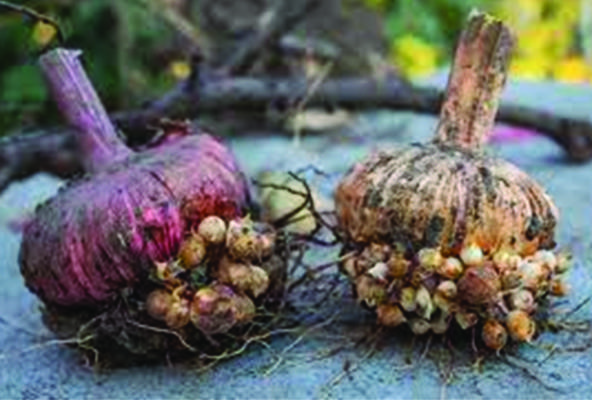As I snip away, I have an image of the little corms or bulbs which have produced such magnificence. The russet nobbles are now hidden away in the dark soil, buried, apparently lifeless. They will lie there through the frosts and frozen ground, almost forgotten. In my garden bed there’s a large empty space.
This image reminds me of Jesus, buried deep in the cold, dark tomb. His friends were lost without him. There was an empty space in their lives.
For my gladioli corms, maybe they are not just buried. I might think of them cosily tucked into their garden bed, enjoying a well-earned rest! They won’t spring to life again without that refreshing slumber.
I think there may be something in this image for us. Do we need times of rest and recuperation? Do we need a time of restoring our bodies, minds and spirits? A fallow time?
I wonder whether God, our Creator, understands this need for rest in all of his creation. God appears to have built in a facility for rest into creation. Whether this is our daily period of sleep, the longer period of hibernation for squirrels, or the buried rest of my gladioli corms. What comes with a period of rest or fallow time?
I have hope that as spring dawns a resurrection occurs. The sword-like shoots of my gladioli will emerge through the soil of my garden bed. New and abundant life!
As we take a fallow time, to rest and recuperate, we might experience loss, as the friends of Jesus did. Loss of things or ways of being that we’ve always held on to but maybe seem unnecessary now. But working through this loss, we might see our own signs of new life. New shoots emerging. Flower buds beginning to grow. We are as varied as the colours of the gladioli. We wait and watch in expectation for our particular signs.
After the loss and time of waiting, the friends of Jesus experienced over-whelming new life. They had mourned the passing of their friend, Jesus. Then in some seemingly inexplicable way, he rose to new life from his burial tomb. Their lives were changed for ever. We can read more about that in the New Testament. Suffice to say, it’s a story worth reading! And not just once. Jesus speaks to us through their story, which is his story. It can become our story, time and time again.
As we move into this fallow season of Autumn, I invite you to enjoy your own moments of rest and reflection. Maybe you enjoy pottering in your garden, going for a walk or opening your window to look at the view. What catches your eye; a last flower, a brown leaf, a buried corm? Rest with the image….
As we come to September I begin to feel a change in the weather. I notice too that the evenings are drawing in. As I walk around my garden I see that the leaves are beginning to fall from the little Acer tree. I’m not one who immediately loves the move towards Autumn. I’m already missing the bright evenings; the expectation of warm months to come and the abundance of new life in the flower beds.
As the days move on I realise that not all is as glum as I am imagining. The colours of Autumn are ravishing, cascading from the trees and bushes. Even the little pink cyclamen hidden away in the longer grass are a joy to spy.
As Autumn progresses, I take out my secateurs to address the long withering leaves of the gladioli. I take time to reflect on what has been. The flamboyant spears of flowers, red, yellow, peach, white standing to attention on parade. Continuing that military association, I remember that gladiolus comes from the Latin word gladius which means ‘little sword’. I think ‘large sword’ would be more appropriate for my beauties!







